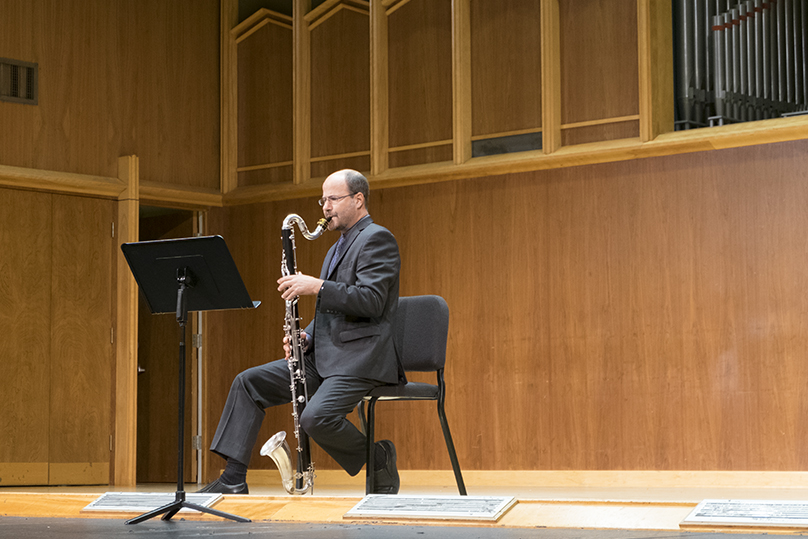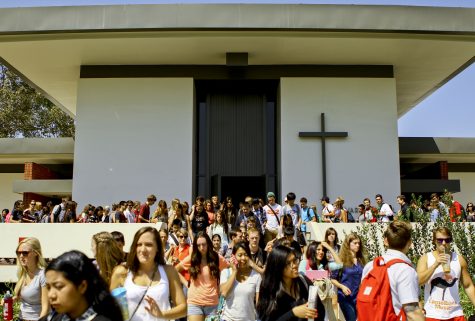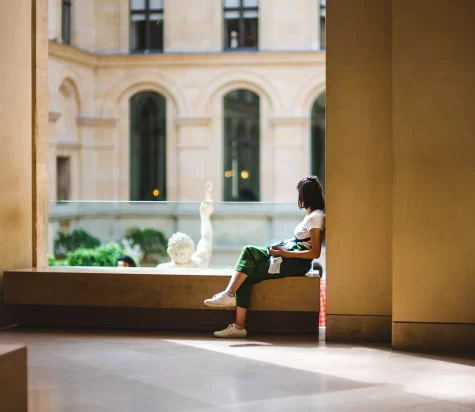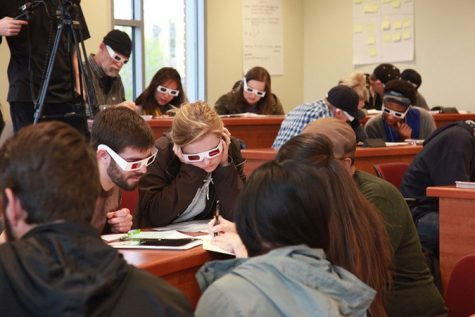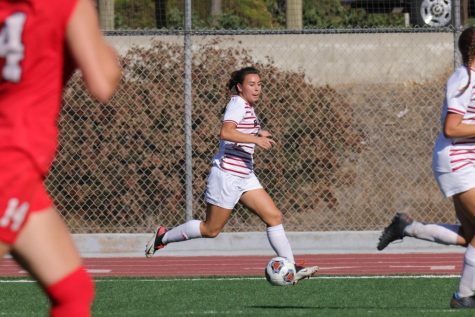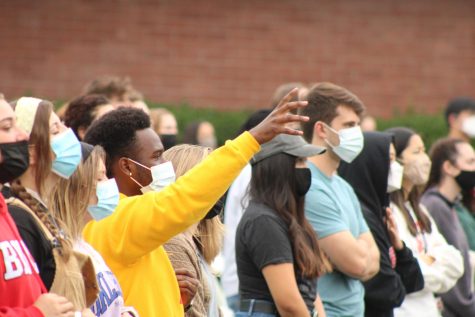Three winds breeze through Biola
“Music at Noon” takes a threefold perspective on the traditional.
April 26, 2017
A three-part harmony echoes through the Crowell Music Hall as three suited men from Orange County’s Pacific Symphony play their instruments before a crowd of students at noon on April 26.
A little-known showcase
Students of the music conservatory are required to attend seven “Music at Noon” concerts every semester, in addition to chapel and conference credits. Often, the conservatory will invite nationally-recognized musicians to Biola to grace the student population with songs long-rehearsed and multiple skills long-since refined.
And yet, few students are even aware of the event occurring.
The trio was composed of three members of the OC Pacific Symphony: Benjamin Smolen, Ted Sugata and Jonathan Ranz. All three are woodwind players, meaning their chosen field of music comprises compositions for flute, oboe and clarinet, among other variations of the instruments, respectively.
Gerardo Carvajal, junior music education major, currently takes private lessons with Ranz, as they share the clarinet as a common instrument. Watching his teacher perform was a treat, as he often does not see a full example in private lessons. Similarly, freshman music education major and french horn player Maggie Corum enjoys attending the concerts at noon, regardless of the requirement to do so.
“I love the performance. It’s pretty cool because the trio is different from all the other ones we have to go to previously. They’ve basically all been violin or all piano,” Corum said. “It was really awesome to see a trio of woodwind players.”
An important asset
Noon concerts are also typically solo artists, so the trio played an interesting combination of two one-player sets, one two-player set and one three-player set. Vincent Paula, freshman music education major, enjoys the concerts greatly and emphasizes how important they are for the Biola student population and the school as a whole.
“These concerts are always good. The conservatory invites some of the best artists throughout the nation, and even the world. A few weeks ago someone from the Juilliard school was playing piano four-hands, and someone really reputable, a pianist, was playing. So, every week. And people don’t even realize at Biola,” Paula said.
Attending “Music at Noon” is free and accessible to all Biola students. Paula entreats Biola students to realize the significance of inviting such well-known musicians, and how Biolans will likely never have the opportunity to hear the varying types of music for free again.
“I wish they took more advantage of the opportunities. Every single student can come to any Conservatory concert for free, most of the time. And most of the time the music is really, really good. You probably won’t hear it anywhere else,” Paula said. “More students should take advantage of it.”
Faulty misconceptions
Most people who avoid the conservatory do so under the impression all they have to offer is typical classical music, according to freshman music composition major Grayson York. On the contrary, he believes there are so many other opportunities to culture oneself in varying types of music.
“One of my favorite things about all these different performances is that we had a flamenco one, and then we had sitar, and we have all these different instruments and styles. And even if you are a music major, there’s so much you haven’t been exposed to. There’s such a large world. And if you aren’t a music major, it’s even more things to explore,” York said.
Adam del Monte, a flamenco guitarist, graced the Crowell stage earlier this semester, bringing life to a form of music often not explored in a classical and educational setting like a university music department. However, del Monte teaches private lessons to several conservatory students, and the need is great for a variety of different styles.
“There’s so many different types of classical music too. People don’t just know what style they draw to,” said Amanda Liebzeit, freshman music composition major. “Especially more of the different ones, like sitar and flamenco — I’m really sure people on campus would enjoy it if they knew about it.”
All five music majors stressed the importance of advertising in the world of music, specifically for the wider Biolan population. If more people were aware of the accessibility of free concerts from famous musicians nationwide, more people would likely take advantage of the incredible opportunity, according to Liebzeit.
“I kind of wish they made it more accessible for people on campus to know about it. It’s a mandatory conservatory thing, where you have to go if you’re a music major, and I know they put it online on Biola, too, under their regular events, but you never hear about it,” Liebzeit said.
Finding joy in attending mandatory concerts is not always the case in music majors, however. Katie Mullings, senior music performance major, finds the mandatory seven credits unnecessary, not due to the guest artists, but the variety of concerts not available for credit. While the conservatory once allowed students to attend peer concerts and senior finals for credit as well, Music at Noon was narrowed down to the only possible credit event.
Mullings theorized the reason behind this potentially being the insult it was to guest performers when little to no students attended their concerts. The conservatory invites prestigious and well-known musicians to attend and perform for the Biola student population, and few students actually attend — this fact harms the reputation of the school as well as the students in the conservatory, who often have more practical and real-life incentive to attend than attaining enough credit to avoid a fine.
Attending guest artists are phenomenal players and deserve a large audience, as they often do in paid venues, and the lack of awareness harms the attempt of the conservatory to introduce students to professionals, according to Mullings.


